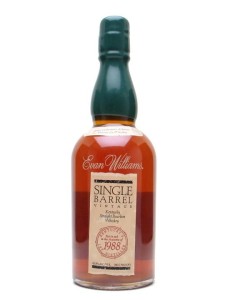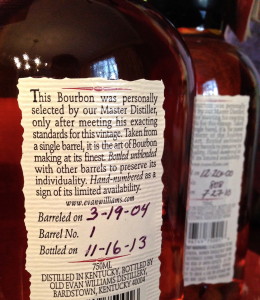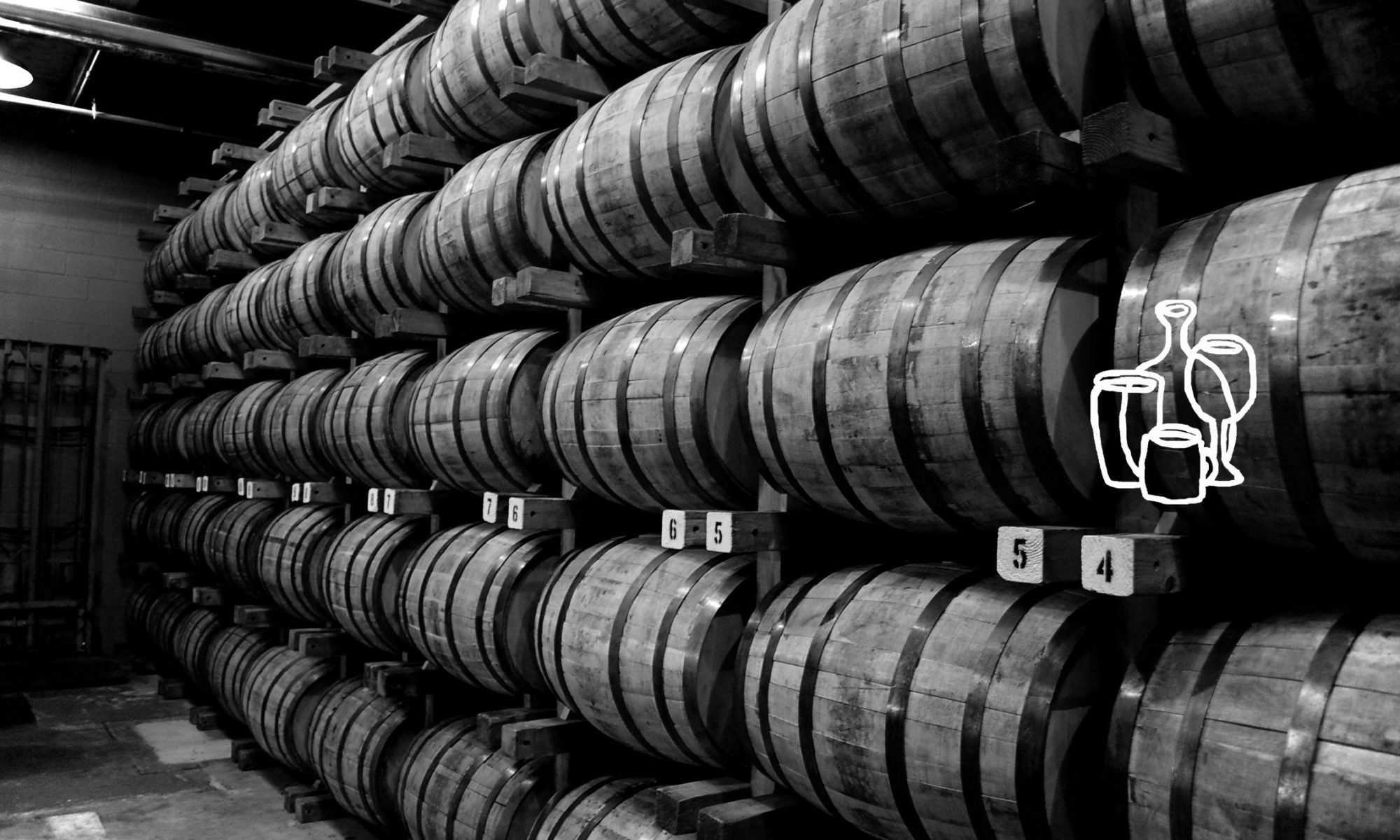I was living in Manhattan, but didn’t know a thing about Manhattans. This was back in the late nineties, when I was in my late twenties. My drink of choice tended towards inexpensive wines that had been given a “best value” stamp of approval by whatever wine magazine was doing that type of thing back then. Or early craft beers like Sam Adams or Pete’s Wicked Ale (remember that???). The closest to a classic cocktail I got was a few rounds of caipirinhas at the all-you-can-eat Brazilian rodizio down on West Broadway, strong and sugary mint alcohol. Actually, I did once try another classic-ish cocktail – I ordered a sloe gin fizz as my mandatory drink at a dark jazz bar down in the Village. It seemed like an appropriately artsy thing to do, but it looked and tasted like a Shirley Temple. I never ordered a sloe gin fizz again.

My liquor cabinet at the time consisted of a bottle of Absolut. That’s it. But then I read a little blurb extolling the virtues of Evan Williams Single Barrel bourbon. I can’t recall where I read it, maybe the Times, maybe a magazine, definitely not on the internet which was still subject to the confoundingly glacial pace of dial-up connections. The key thing that drew me to the Evan Williams was that the article said it was an amazing bargain – probably $17 or so at the time. Ahh, value. Important to me now, even more important to my younger self. Actually, $17 felt like a big splurge at the time, next to the $10 1.5 liters of bourbon all around the Evan Williams Single Barrel at the liquor store. But I made the purchase, then pretty much relegated the bottle to a dark cabinet somewhere in my apartment.
I guess you could say my whiskey enthusiasm has come a long way (as has the whiskey industry, and whiskey pricing, and whiskey fanaticism). But Evan Williams Single Barrel was my first seriously considered bourbon purchase, and it’s held a soft spot in my heart ever since. It seems somewhat pedestrian today – a (roughly) ten year old single barrel bourbon – but Evan Williams Single Barrel was pretty rare when it came out with its first “vintage” in the mid 1990’s. Heaven Hill likely had the competition in mind when they launched it. Over at the rival George T. Stagg Distillery, master distiller Elmer T. Lee had paved the way for a top-notch single barrel bourbon a decade before with Blanton’s, then got his own brand later in the ’80’s. But Evan Williams came in at a much lower price point, with a unique vintage notion – all the barrels selected for a given release were put in barrel the same year many moons ago. The bottles got slopped with a barreled-on date and a bottled-on date to provide a bit of insight into what made each bottle unique. Even now, I wish putting the barreling and bottling dates on bottles were a more commonplace practice. And I’m thankful that Evan Williams keeps up the practice.
 All along, Evan Williams Single Barrel has been about great bourbon value. The fact that each year’s release is a little bit different (and the fact that there’s variation from barrel to barrel within each year’s release) keeps up the intrigue over time. Some vintages get a reputation for excellence, some get a bum rap. Heaven Hill tries to find a slightly different personality for each release, but they all tend to share a core house flavor profile that I find to be about as bourbon-y as bourbon can be. Not too hot, not too thin, plenty of rich brown sugar, just enough spice.
All along, Evan Williams Single Barrel has been about great bourbon value. The fact that each year’s release is a little bit different (and the fact that there’s variation from barrel to barrel within each year’s release) keeps up the intrigue over time. Some vintages get a reputation for excellence, some get a bum rap. Heaven Hill tries to find a slightly different personality for each release, but they all tend to share a core house flavor profile that I find to be about as bourbon-y as bourbon can be. Not too hot, not too thin, plenty of rich brown sugar, just enough spice.
The 2004 vintage of Evan Williams Single Barrel is hitting stores now. I just got my first bottle (thank you Heaven Hill). In fact, it’s labeled as coming from “barrel no. 1” of this release. I’m eager to give it a try, as I’m sure it will spark fond memories and help create some new ones as well. I’ll share some tasting notes in a few weeks once I’ve had a chance to sit with this one a bit and reminisce. Now where did I put my caipirinha?
